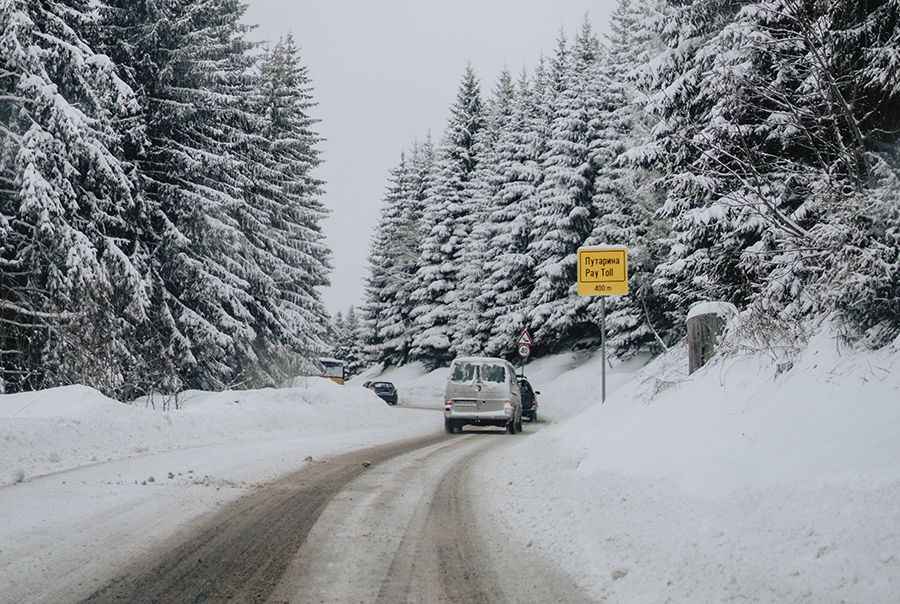Arctic Survival: Advanced Protocols for High-Altitude Winter Driving
Driving in extreme winter conditions is a technical discipline that leaves no room for error. When the road is obscured by heavy snowfall and visibility drops to zero, a standard commute turns into a high-stakes survival scenario. Beyond basic tire checks, conquering icy mountain passes requires a deep understanding of vehicle thermodynamics, traction physics, and emergency isolation protocols. This guide outlines the essential strategies for navigating the world’s most dangerous winter routes.

| Extreme Winter Technical Specs | |
|---|---|
| Traction Hardware | 3PMSF rated winter tires + heavy-duty V-bar chains. |
| Critical Hazard | Carbon Monoxide poisoning from snow-clogged exhaust pipes. |
| Survival Rule | Never leave the vehicle during a whiteout; stay as a "survival cell." |
1. Technical Preparation: Hardening the Vehicle
Before hitting a high-risk winter route, your vehicle must undergo a cold-weather audit. Standard tires are insufficient; only tires with the **3PMSF (Three-Peak Mountain Snowflake)** symbol provide the rubber compound flexibility needed for sub-zero temperatures. Ensure your battery is at peak health, as cold weather can reduce its cranking power by 50%. Crucially, disable cruise control on slippery surfaces, as the system can cause the drive wheels to spin and lose lateral stability during a gear shift or sudden traction change.
2. The Physics of Snow and Ice Navigation
Movement on icy gradients is governed by momentum and friction management. Accelerate and decelerate with extreme gradualness to avoid breaking the "static friction" of your tires. When approaching a steep incline, build momentum at the base; never stop or attempt to power out while midway up a hill, as this will likely result in a catastrophic slide. For descents, utilize engine braking (low gears) to manage speed, relying on the brakes only for minor corrections to prevent overheating or wheel lock-up.
3. Emergency Isolation: The Vehicle as a Survival Cell
If you become stranded in a severe storm, your vehicle is your only shelter. **Do not attempt to walk for help in a whiteout.** Disorientation happens within seconds, and the risk of hypothermia is absolute. Follow these critical survival steps:
- Exhaust Management: Periodically clear snow from around the exhaust pipe. A blocked pipe will force deadly carbon monoxide into the cabin.
- Energy Conservation: Only run the engine for 10 minutes every hour to maintain heat. Keep a dome light on at night to signal rescue teams—it consumes minimal power.
- Insulation Logistics: Use floor mats, extra clothing, and Mylar emergency blankets to insulate your body. Focus on keeping your core warm.
4. The Overlander’s Winter Recovery Kit
Preparation for dangerous winter roads requires a specialized recovery loadout. Beyond a basic first-aid kit, carry the following high-stakes gear:
- Sturdy Metal Shovel: Plastic shovels often shatter in sub-zero ice.
- Abrasive Material: Rock salt, sand, or professional traction boards (like Maxtrax) for self-rescue.
- Signaling Hardware: High-intensity flares or LED reflectors for low-visibility conditions.
- Extra Fluids: Sub-zero windshield washer fluid and at least 48 hours of high-calorie emergency rations.
Conclusion
Winter driving on the world’s most dangerous roads is a test of discipline and mechanical preparedness. By understanding the physics of traction and the logistics of survival, you mitigate the risks of the cold. On an icy pass, the difference between an adventure and a tragedy is often the gear you chose to carry and the speed you chose to maintain. Stay focused, stay prepared, and respect the ice.